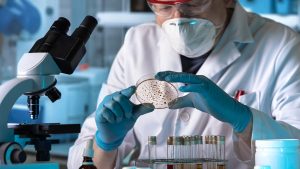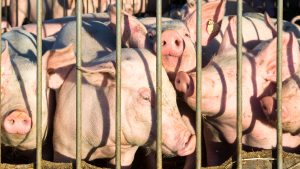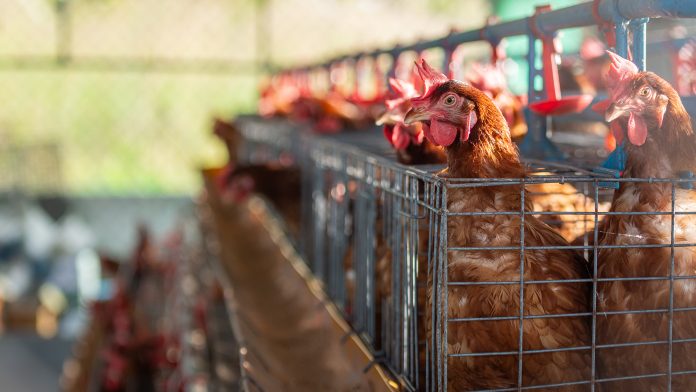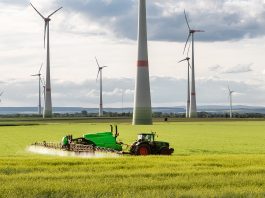Cóilín Nunan, Policy and Science Manager at the Alliance to Save Our Antibiotics, discusses antibiotic overuse in farming, and advocates for stricter regulations and fundamental changes in farming practices to mitigate antibiotic resistance.
Since their introduction to human medicine in the 1940s, antibiotics have become a cornerstone of modern medicine and helped save enormous numbers of lives. Antibiotics are not only used to treat patients that have a bacterial infection, they are essential for preventing infections in those undergoing life-saving procedures like cancer chemotherapy, organ transplants or caesareans, or other types of major surgery.
Unfortunately, according to the World Health Organization, the rise of antibiotic resistance, which occurs when bacteria evolve to resist the action of antibiotics, threatens many of the gains of modern medicine. The WHO says it is one of the top global public health and development threats.
Impacts of antibiotic resistance
Antibiotic resistance is not merely a threat for the future, it is already here today and having a major impact. According to the first comprehensive assessment of the global impact of antibiotic resistance, published in 2019 in the journal The Lancet, the deaths of 1.27 million people a year are directly attributable to antibiotic resistance, and 4.95 million deaths a year are associated with antibiotic resistance.
Increasing levels of resistance are due to the use and overuse of antibiotics. Excessive antibiotic use increases the selective pressure on bacteria to evolve resistance, as sensitive bacteria are killed off, and resistant ones survive, multiply and spread.
The main cause of resistance in most human infections is the use of antibiotics in human medicine, but we know that the overuse of antibiotics in intensive livestock farming is also contributing.

Overuse of antibiotics in farming
When antibiotics are overused in farm animals, bacteria in their guts, or on their skin, develop resistance, and these can spread to humans through the food chain, the environment, or by direct contact. This occurs for a wide variety of infections, including typical food-poisoning bacteria, like Salmonella or Campylobacter, the increasingly resistant E. coli, which is responsible for thousands of deaths in the UK each year, or for well-known superbugs like MRSA or Clostrdium difficile.
In many countries, data on antibiotic use is poor, but it is estimated that globally, about two-thirds of all antibiotics are used in farm animals, with the percentage in the UK being lower at about 30%. Much of this farm antibiotic use is inappropriate and avoidable. Far too often antibiotics are given to groups of animals, in feed or drinking water, to control the spread of diseases which occur in the stressful and unhygienic conditions in which many intensively farmed animals are kept. This occurs particularly for pigs and poultry, but also in some countries in cattle.
Stop the overuse of antibiotics in livestock farming
The Alliance to Save Our Antibiotics is an alliance of health, medical, civil-society and animal-welfare groups that was founded by Compassion in World Farming, the Soil Association and Sustain, to campaign to stop the overuse of antibiotics in livestock farming.
Our latest report, published in February, shows that some significant progress towards reducing farm antibiotic use is being made in the UK, and in many other European countries, but that far more needs to be done to achieve truly responsible use.
UK farm antibiotic use has fallen by 59% since 2014, which is good news, but unfortunately 75% of that use is for group treatments. This means that antibiotic use is still not sufficiently targeted and that these hugely important medicines are still being used to prop up farming systems which are causing too many animals to fall sick.
In Norway, Iceland, Sweden and Finland, the European countries with the lowest farm antibiotic use, group treatments only account for between 10% and 27% of total use. One reason for this is that these Nordic countries have some higher animal-welfare standards, particularly in the pig industry, and this means that illness is not as widespread and treatments can be more frequently aimed at individual animals.
Improvements to the UK’s regulation of farm antibiotic use
Fortunately, some improvements to the regulation of farm antibiotic use are expected. The UK Government recently announced it is introducing new legislation, which will probably come into force later this year. This legislation will be largely based on rules the European Union adopted in 2022.
Routine farm antibiotic use will be prohibited, and preventative use will be restricted to exceptional cases, which are welcome actions.
Unfortunately, the UK rules will still be significantly weaker than the EU’s. In particular, the UK government is refusing to ban purely preventative group treatments, as the EU did in 2022. This is a major loophole which will allow some farms to keep on misusing antibiotics.
The new UK legislation will also ban using antibiotics to compensate for poor hygiene, inadequate animal husbandry, or poor farm management practices, as the EU has already done. On paper, this sounds like excellent news, and it would be if implemented in practice.
Problems with current farming practices
However, as our report shows, many current farming practices are actually causing animals to fall sick and are linked with antibiotic overuse. High levels of stress, poor hygiene, inappropriate diets, and high numbers of farm animals kept indoors in close confinement, all contribute to the emergence and easier spread of intestinal and respiratory disease and to the need for antibiotic use. The early weaning of piglets, which can be legally weaned as early as 21 days, can cause post-weaning diarrhoea and is a major reason for high antibiotic use in the pig industry.

Modern breeds are often selected to increase productivity, but this can lead to numerous health and welfare problems and higher antibiotic use. The growth rate of modern broiler chickens has quadrupled since the 1950s, and intensively farmed chickens are now slaughtered when they are just 28 to 42 days old. Data from the Netherlands shows that fast-growing chickens receive 6 to 9 times more antibiotics than slower-growing birds because of their health problems.
Sows are being bred to produce ever-increasing numbers of piglets. The most productive UK sows now produce an average of 17.16 piglets a litter and 37.56 live piglets a year. Such hyper-prolific sows may not have enough teats and can struggle to produce enough milk for all their piglets, making early weaning necessary.
British dairy cows produced an average of 8,163 litres per cow in 2022, up from 5,151 litres in 1990, and compared with a global average of about 2,500 litres. Genetic selection for high milk yield is positively correlated with the incidence of lameness, mastitis, reproductive disorders, and metabolic disorders, conditions frequently requiring antibiotic treatment.
Unfortunately, despite the overwhelming evidence showing that modern farming practices, and poor hygiene and high levels of stress are associated with more disease and greater need for antibiotics, the government is yet not planning any improvements to minimum husbandry standards. This raises serious questions about whether we can really expect the use of antibiotics to compensate for poor hygiene and inadequate animal husbandry to end when the new legislation comes into force.
Our approach to farming needs to change
Stricter rules on farm antibiotic use, at least as stringent as the EU’s, are needed, but ultimately, to address the many causes of farm-animal ill health, we need to fundamentally change our approach to farming.
Farm animals deserve to be kept in far less stressful conditions, where their health and happiness are given real priority. And consumers will also need to accept that protecting our antibiotics, and farming animals more humanely, will mean less, but higher-quality and healthier animal foods.









